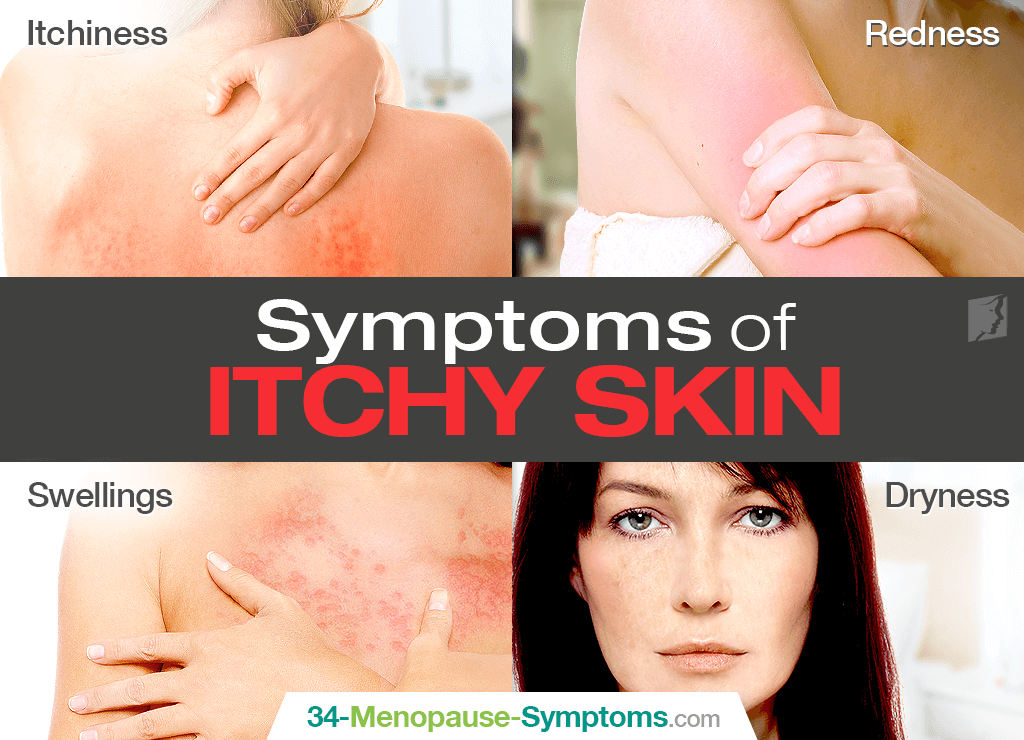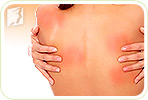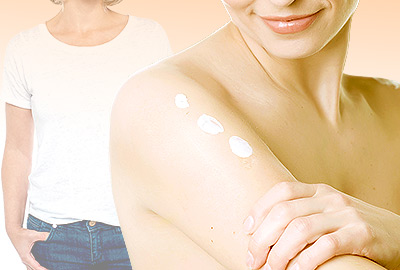Women who are passing through periods of reproductive significance - like menopause or pregnancy - may experience a plethora of symptoms, itchy skin being one of them, due to drastically fluctuating hormone levels. While often deemed self-explanatory, there are more symptoms of itchy skin than commonly acknowledged.
Continue reading to learn all about itchy skin symptoms as well as what you can do to finally find relief these troublesome days.
Itchiness
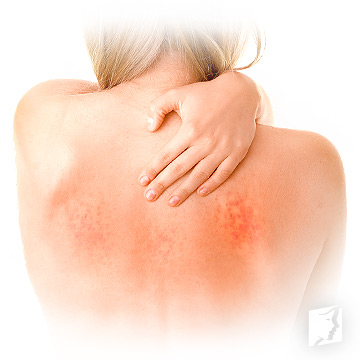
As its name suggests, itchy skin provokes persistent itchiness across the dermal layer, causing women to scratch and make the condition worse as it just gets more irritated. The itching symptoms may be felt in certain areas, like the arms and legs, or over the entire body.
Redness
Without a doubt, itchy skin can occur without any noticeable changes on the skin. However, it is common for the affected area to take on a rosy color. Skin redness can evoke a burning sensation as well, leading women in desperate search of any sort of relief.
Swellings
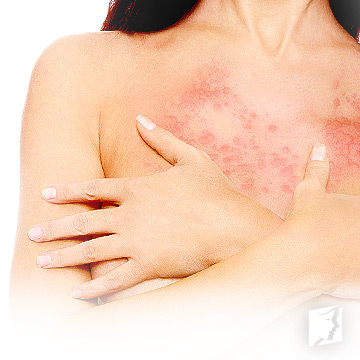
Any sort of bumps, spots, or blisters can accompany itchy skin, although take heed that they may signify an allergic reaction as well. Pay attention to food intake and what your skin comes into contact with that could lead to any swelling. If there is no clear trigger, hormones may be to blame.
Dryness
Itchy skin can be caused by dry, cracked skin that is lacking moisture can be a symptom of itchy skin as you scratch and irritate it more. Dryness can also mean skin that is leathery or scaly. Be careful not to scratch it more as further irritation to dry skin may lead to bleeding.
How Can I Relieve Itching Symptoms?
Finding ultimate relief from itchy skin caused by hormonal fluctuations revolves around resolving the root cause of hormonal imbalance.
Itchy skin treatments to naturally bring about hormonal equilibrium start with incorporating healthy lifestyle changes of an improved diet and wholesome habits.
Optimize your meal plans with plenty of phytoestrogens, plant-based estrogenic compounds that act as normal estrogens in the body, as well as omega-3s to reduce inflammation and vitamin E to help retain moisture. For additional hydration, drink plenty of water and apply fragrance-free lotions.
For optimal results, start using alternative medicine proven to support endocrine system health, which include phytoestrogenic herbal supplements - like black cohosh, red clover, and dong quai - and hormone-balancing supplements, such as Macafem.
The latter nourishes your endocrine and pituitary glands to produce their own hormones, thus eliminating the need for introducing exogenous ones into your body. As such, it can be considered a safer way to balance hormones and itchy skin symptoms once and for all.
Key Takeaways
Without a doubt, itchy skin can leave many women irritated and even affect their sleep, making them restless for days, weeks, or months to come if left unmanaged. Other than consistent itchiness, further symptoms of itchy skin include redness; bumps, spots, or blisters; or dry, cracked skin. Nevertheless, relief if just a step away with proper initiative. Women may naturally relieve the symptom by focusing on treating the root cause, hormonal imbalance. This can be done with a combination of lifestyle adjustments and alternative medicine for improved outcomes.
Sources
- Cleveland Clinic. (n.d.). Dry Skin/Itchy Skin. Retrieved January 8, 2019, from https://my.clevelandclinic.org/health/diseases/16940-dry-skinitchy-skin
- Mayo Clinic. (2018). Itchy skin (pruritus). Retrieved January 8, 2019, from https://www.mayoclinic.org/diseases-conditions/itchy-skin/symptoms-causes/syc-20355006
- NHS. (2017). Itchy skin. Retrieved January 8, 2019, from https://www.nhs.uk/conditions/itchy-skin/

